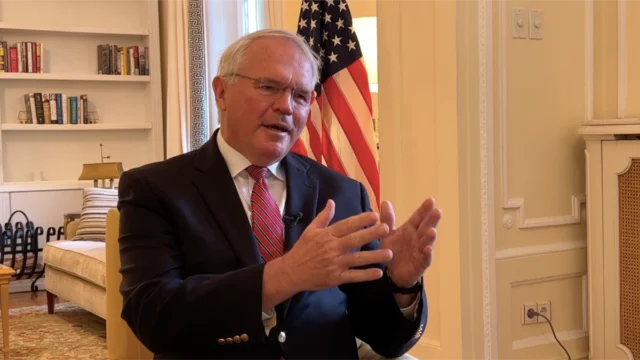The US Ambassador in Belgrade has vaunted cooperation with the Serbian Army even as the President of Serbia makes clear his intention to invade Kosovo at a time of his choosing. How can both be true?
No big puzzle
It’s really not hard to figure this out. Serbia cooperates with US and NATO exercises for two reasons. First, they provide good training, which the Russians are unable to equal. The performance of the Russian Army in Ukraine has improved, but its losses are simply colossal. No one would want to emulate them. Second, NATO exercises provide excellent opportunities to gather intelligence. That will serve well in any Serbian military action against NATO-led forces in Kosovo. Belgrade no doubt also feeds that intelligence back to Moscow.
Only marginally harder to understand is the reference to the Kosovo Security Force (KSF) as the KLA (or Kosovo Liberation Army). The KLA was demobilized after the 1999 war. The KSF that exists today is the creation of US and British training and equipping several generations of organization and personnel removed from the KLA. The US Ambassador in Belgrade knows that perfectly well. His reference to the KLA is intended to signal that he agrees with the Serbian government that the KSF is illegitimate.
Toadying hasn’t worked
This toadying to Vucic has become the default behavior in Belgrade. The question is why it is tolerated in Washington. I suppose there are reasons. But they are unlikely to be good ones. No amount of lickspittle will change Belgrade’s decision to align with Russia. Vucic has made clear that he intends to try to take back a piece of Kosovo whenever he gets an opportunity. Any agreement in Ukraine to surrender territory to Russia will provide that opportunity.
Washington needs to reconsider its long effort to court Vucic. That effort has failed. It has also encouraged his irredentist ambitions, not only in Kosovo but also in Montenegro and in Bosnia and Herzegovina. The “Serbian world” he aims for is strictly analogous to the “Russian world” President Putin is trying to create in Georgia, Belarus, Moldova, and most ambitiously Ukraine. The West should be countering Russian and Serbian ethnoterritorial ambitions, not encouraging them. Instead, Washington is doubling down on a policy that has failed to produce anything more than minor results.
A better policy would not be hard to find
A re-evaluation is long overdue. The current Trumpian affection for ethnonationalism and irredentism is inconsistent with the liberal democratic pretensions of the Biden Administration. Tony Blinken, bless is hard-traveling body and no doubt preoccupied mind, needs to say to State Department Assistant Secretary Jim O’Brien: we have failed to get Vucic on side. Let’s try tough love.
That would mean reading him the riot act on many things. First would be prioritizing justice, preferably in Kosovo, for the organizers and perpetrators of the September 24 terrorist incident that Belgrade sponsored inside Kosovo. Second would be ensuring that Pristina gets the support it requires not only for membership in the Council of Europe and relief from outdated and counterproductive EU “consequences” but also for opening of negotiations on NATO membership. Third would be readiness to denounce any cheating in preparation for the upcoming rerun of Belgrade elections.
I could go on, but you get the point. US policy needs to return to favoring its friends in the Balkans and countering its enemies. That should not be too hard to do. Double down on success, not failure.
